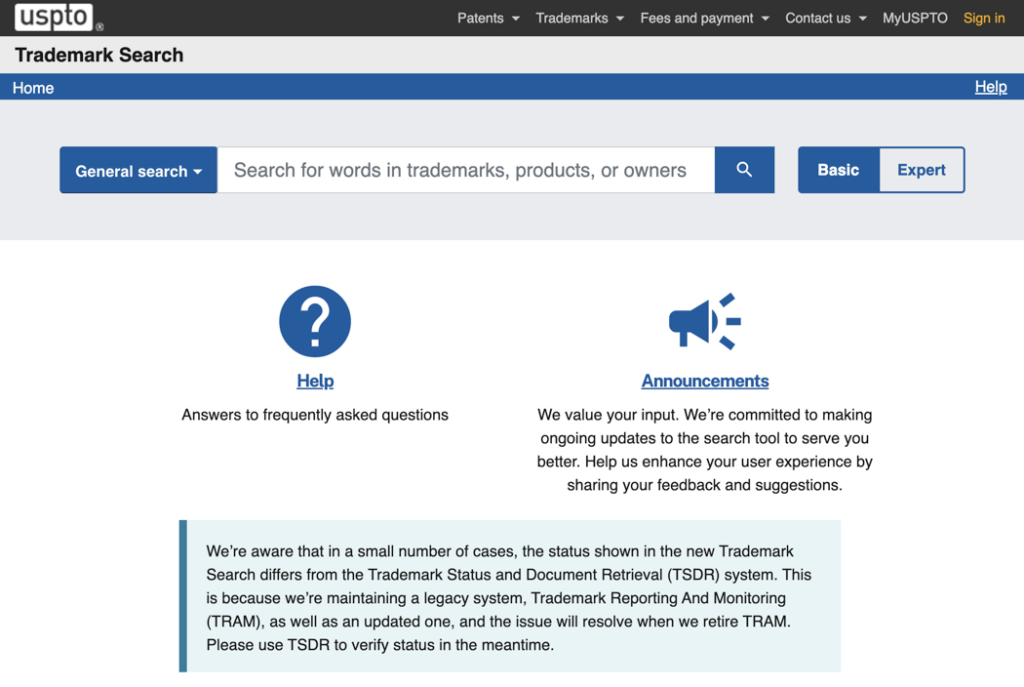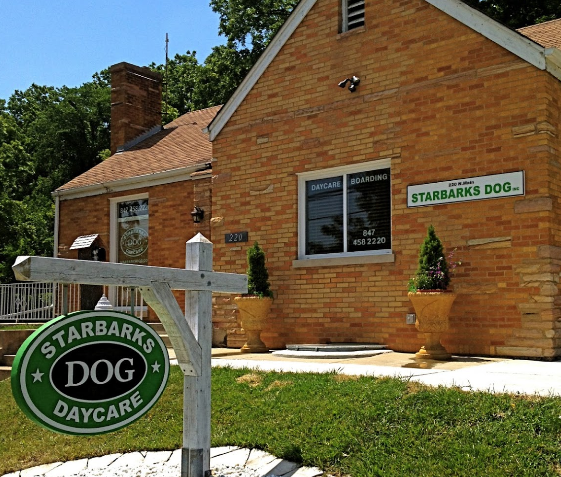Are you embarking on an NC trademark search? Employing accurate search strategies are essential if you are looking to protect your brand in North Carolina. In this article, you will discover the essential steps to ensure your state trademark is clear of potential conflicts.
While the Secretary of State's office plays a crucial role in the trademark search process, providing necessary resources and guidelines, this concise guide will direct you through using those resources effectively.
Simplify the trademark search process, avoid legal pitfalls, and confidently claim your unique brand identity with the knowledge you’ll gain from this article.
Key Takeaways
A successful North Carolina trademark search relies on using the NC Secretary of State’s website and other databases to ensure the uniqueness of your trademark. A proper search also will prevent possible infringement by identifying conflicts with existing marks before you waste a lot of time and money on your brand.
Creating a distinctive trademark is crucial for brand protection and market identity in North Carolina. This process involves strategies like inventing unique names, while avoiding generic or overly descriptive names that may not qualify for trademark protection.
Beyond the initial state-level search, it is advisable to perform a more comprehensive trademark investigation including searching federal databases and common law results, and to consider federal registration for broader, nationwide protection of the brand.
Navigating the NC Trademark Search Database
Imagine the North Carolina trademark database as a vast library, where each book represents a different brand’s identity. Just as a librarian must catalog and organize each volume to avoid duplication, so must you ensure that your proposed trademark is unique among the annals of North Carolina trademarks. This thorough search, which spans across the North Carolina Secretary of State’s website and other databases, is your first step to avoid infringing on registered trademarks and ensure that you truly own your mark.
The dedicated search system provided by the North Carolina Secretary of State’s office allows you to delve into this library of trade names with ease, identifying potential conflicts with existing marks that could impede your trademark registration.
Accessing the Search Portal
The gateway to this repository of North Carolina trademarks is found on the North Carolina Secretary of State’s official website. Here, the search portal beckons, offering a variety of criteria to sift through the multitude of registered marks. Whether you’re looking for a mark by name, registration number, or owner name, the system is designed to accommodate your inquiry, ensuring a comprehensive sweep of potential conflicts. It’s a crucial step, akin to checking the depth of waters before setting sail, to ascertain that the trademark you’ve set your sights on is not already claimed by another.

Understanding Search Criteria
A comprehensive knowledge of how to effectively search for trademarks is essential to the success of your brand. The North Carolina trademark database offers a robust set of searching criteria, including:
Mark name
Registration number
Owner name
Class number
Class title
By combining a search of the North Carolina database with the United States Patent and Trademark Office Principal Register (aka the USPTO database) you may to cast a wide net in your search for existing trademarks.

For those seeking to pinpoint their mark’s classification, the system also provides an extended search of the International Classification of Goods and Services. Whether you’re using descriptive keywords or delving into the specifics of service or goods classifications, understanding these criteria is paramount in steering clear of existing trademarks and ensuring smooth sailing toward your initial registration date (in North Carolina at least).
Analyzing Your Trademark Search Results
After the North Carolina search of similar marks is conducted and a report of your results generated, the real work begins: analyzing the search results with a detective’s eye to identify any marks that may conflict with your proposed trademark. This analysis not only involves looking for exact matches but also assessing names that are likely to cause confusion with your chosen name. This search could include both newly registered marks and recent renewals, as well as long-standing trademarks, any of which can provide early warning sign of potential trademark issues you may face by filing an application.
Recognizing active registrations and pending applications that are problematic is essential to how applicants avoid submitting a trademark application that will be denied because it infringes upon existing registrations, resulting in costly and time-consuming delays and possible legal disputes.
Should you detect possible trademark or service mark conflicts, consider it an opportunity to adjust your mark or seek legal advice before proceeding.
Distinguishing Your Mark: Strategies for Unique Trademark Creation
A distinctive trademark serves to make your brand visible to all in the marketplace and unmistakably yours.
It’s not just about standing out; it’s about crafting an emblem that truly encapsulates your brand’s identity and message. Through creative strategies like playing with spelling, pronunciation, and inventing new words or names, you can steer your brand towards a mark that’s not just unique but resonant with the values and ethos of your business.
Innovative branding is not just beneficial; it’s essential for ensuring that your trademark protection is ironclad and that your mark continues to be associated solely with your products or services.
Significance of Distinctiveness
The distinctiveness of a trademark is the the element that allows consumers to identify the source of goods or services, distinguishing you from all of your other competitors in the open market. A truly distinctive mark not only cements your brand in the minds of consumers but is also a formidable weapon in the arsenal of legal protection, ensuring that your rights are enforceable and that your brand retains its unique identity.
In the realm of intellectual property, this exclusivity is what grants you the power to prevent others from using a similar mark, thus preserving the integrity and reputation of your brand.
Avoiding Common Pitfalls
However, the path to a distinctive trademark is fraught with pitfalls many unwary entrepreneurs fall prey to.
Generic or descriptive names, while tempting in their simplicity, often lack the necessary distinctiveness to receive trademark protection. In fact, granting registration to a mark that is inherently non-distinctive may require you to demonstrate that it has acquired a recognizable secondary meaning in the marketplace to be eligible for state registration. It’s a journey that requires forethought and innovation, as the choice of a non-distinctive mark could lead to legal challenges and additional costs to maintain its perceived distinctiveness.
Therefore, aspiring to the heights of arbitrary, fanciful, or suggestive marks is not just advisable but essential for businesses operating in a competitive market to avoid potential infringement issues and ensure your business’s continued success.
Comprehensive Checks Beyond the NC Database
Securing a trademark is requires an exhaustive search, typically extending beyond the borders of the North Carolina database to other business directories, online marketplaces, and social media platforms.
This comprehensive search is your safeguard against the possibility of trademark infringement and requires extreme due diligence, ensuring your brand’s identity is safe in the vast expanse of state commerce.
The North Carolina Secretary of State's office plays a crucial role in the broader context of trademark registration and protection.
For businesses with eyes on the future, dreaming of interstate expansion or seeking nationwide protection, the importance of a federal trademark registration cannot be understated. Such national brand protection will allow you to safely and quickly build a brand that is not restricted to the state of North Carolina.
Federal System Considerations
The federal trademark registration offers several benefits:
It is more than a mere formality; it’s a declaration that you own your brand name in connection with your products and services across the entire United States
It offers a presumption of ownership and exclusive rights that state-level registration cannot match
It gives you the power to initiate lawsuits in federal court
It allows you to use the federal registration symbol (®), which adds legitimacy and protection to your brand
Moreover, a federal registration can be registered with US Customs and Border control, thus protecting against the importation of infringing goods and serving as a cornerstone for establishing international trademark protection, well beyond the shores of the United States.
Aligning with the federal system also ensures consistency with the Trademarks Division of the North Carolina Secretary of State, streamlining the search and examination process for trademark and service mark registration.
Investigating Unregistered Use
A comprehensive search doesn’t end with just federally registered marks; unregistered trademark use is the silent undercurrent that could undermine your brand’s claim to exclusivity. Unregistered use is documented through evidence such as web page printouts and photographs of the mark in a commercial setting, which serve as tangible proof of a brand’s presence in the marketplace.
A common law search is a crucial step in ensuring that your mark does not infringe upon the rights of others who might not have formalized their trademark but have established a presence in the business world none-the-less.
Investigating the realm of unregistered trademarks through a common law search helps to avoid potential infringement issues and reinforces the authenticity of your claim to the mark, ultimately leading to a state level registration, or even a federal level registration.
Preparing Your Trademark Application
One you have properly searched and investigated the viability of your trademark, it’s time to begin preparing your trademark application. This critical phase involves compiling accurate information about your business and the mark itself, be it a standard character mark or a design mark. The application must demonstrate actual use of the mark in commerce, whether through the sale and distribution of goods or the advertising of services. This is necessary before it can be submitted for trademark registration in North Carolina.
Beware, simple errors such as incorrect business owner details or conflicts with existing trademarks can prevent or delay your trademark registration, requiring you to restart the application process.
Gathering Acceptable Specimens
You will need to gather three original specimens that showcase your trademark’s current use, whether on products for a trademark or on services listed in commercial settings for a service mark. Acceptable specimens include tangible items like business cards, advertisements or a web page printout, which serve as evidence of your mark’s presence in the marketplace. The North Carolina trademark office will not accept speculative representations such as photocopies or drawings. Rather, they require specimens that exhibit the mark as it appears in the ordinary course of trade.
While issues with specimens can often be corrected, ensuring their suitability from the outset will keep your application moving quickly through the examination process.
Crafting a Signed Statement Verifying Use
Additionally, a signed statement verifying the bona fide use of your mark in the ordinary course of trade is necessary to authenticate your application. This declaration, notarized and signed by an individual with the authority to bind the applicant, serves as a sworn testimony to the mark’s active use.
The significance of this document cannot be overstated, as it confirms the mark’s presence in the commercial sphere and supports the legitimacy of your ownership claim.
Understanding Fees and Timelines
If you are going to file and proceed with a trademark in NC, you must Understand the costs and duration of the trademark process. For a trademark registration in North Carolina, a non-refundable registration fee of $75 must be submitted with your application. Most trademark-related documents are processed within a span of 6 to 8 business days.
However, certain services like reinstatements may require a longer processing time of approximately 15 to 18 business days. Be advised that the office of the North Carolina Secretary of State does not offer expedited services for trademark registration.
North Carolina Trademarks vs Filing a Federal Trademark
Many entrepreneurs will be faced with choosing between a North Carolina trademark and a federal trademark registration. There are pros and cons to each option. If your aspirations are local, only catering to clients within the state, then a North Carolina trademark may suffice. Proceeding at the state level offers a less expensive and faster route to registration.
However, for those setting their sights on national brand recognition or an online presence that transcends borders, a federal trademark should is vital. It provides an additional shield of protection that state law cannot offer. However, a Federal trademark takes longer to achieve and is a more costly investment.
When making this decision, it’s important to remember that federal law takes precedence over state law, and should a similar name receive federal trademark protection, your state trademark could be rendered void.
Legal Assistance and Intellectual Property Advice
As you embark on the trademarking process, enlisting the expertise of a trademark attorney can ensure a smooth and seamless journey that not only helps you achieve your goals faster, but also keeps you free from the legal turbulence and difficulties. An attorney can oversee the search and application process, allowing you to focus on what you do best – working on building your business.
The role of an attorney extends well beyond the application, as they are instrumental in identifying and addressing potential infringement and other legal issues, thus maintaining the exclusivity of your brand.
Moreover, the guidance of a trademark attorney in North Carolina can be invaluable in navigating the licensing of trademarks and establishing franchising agreements, creating opportunities for revenue generation through well-structured (and frequently overlooked) legal strategies.
Seeking knowledgeable legal counsel can also offer reassurance in your ability to protect your trademark, guiding you toward a brand that sails smoothly through the approval process, whether you choose the state route in North Carolina, or a federal registration via the USPTO.
Summary
A well-defined and protected trademark is vitally important to building a successful brand, guiding your business through the competitive landscape of the marketplace and towards a successful business. This guide has covered everything from the initial search in the North Carolina trademark database to the preparation of your application, highlighting the importance of distinctiveness, the need for comprehensive checks, and the wisdom in seeking legal expertise.
Frequently Asked Questions
Do I need to conduct a trademark search if I'm only using my mark in North Carolina?
Yes, conducting a trademark search is crucial to ensure that your mark doesn't infringe on any existing trademarks and to avoid potential legal issues, even if you're using it exclusively in North Carolina.
What are some strategies for creating a unique and distinctive trademark?
To create a unique and distinctive trademark, consider playing with spelling, pronunciation, wordplay, inventing new words, or using words from other languages. These creative strategies help ensure that your mark reflects your brand's identity.
Can I use a trademark that I found during my search that is not registered?
It is important to investigate the use of unregistered trademarks thoroughly and consider seeking legal advice to avoid potential conflicts. Using an unregistered trademark without proper investigation can lead to infringement issues.
How long does it usually take to process a trademark registration in North Carolina?
Trademark registration in North Carolina typically takes between 6 to 8 business days, though some services may take up to 15 to 18 business days.
Should I consider federal trademark registration even if I only plan to do business in North Carolina?
Yes, you should always consider federal trademark registration even if you only plan to do business in North Carolina, as it offers nationwide protection and other advantages not provided by a state-level registration.



